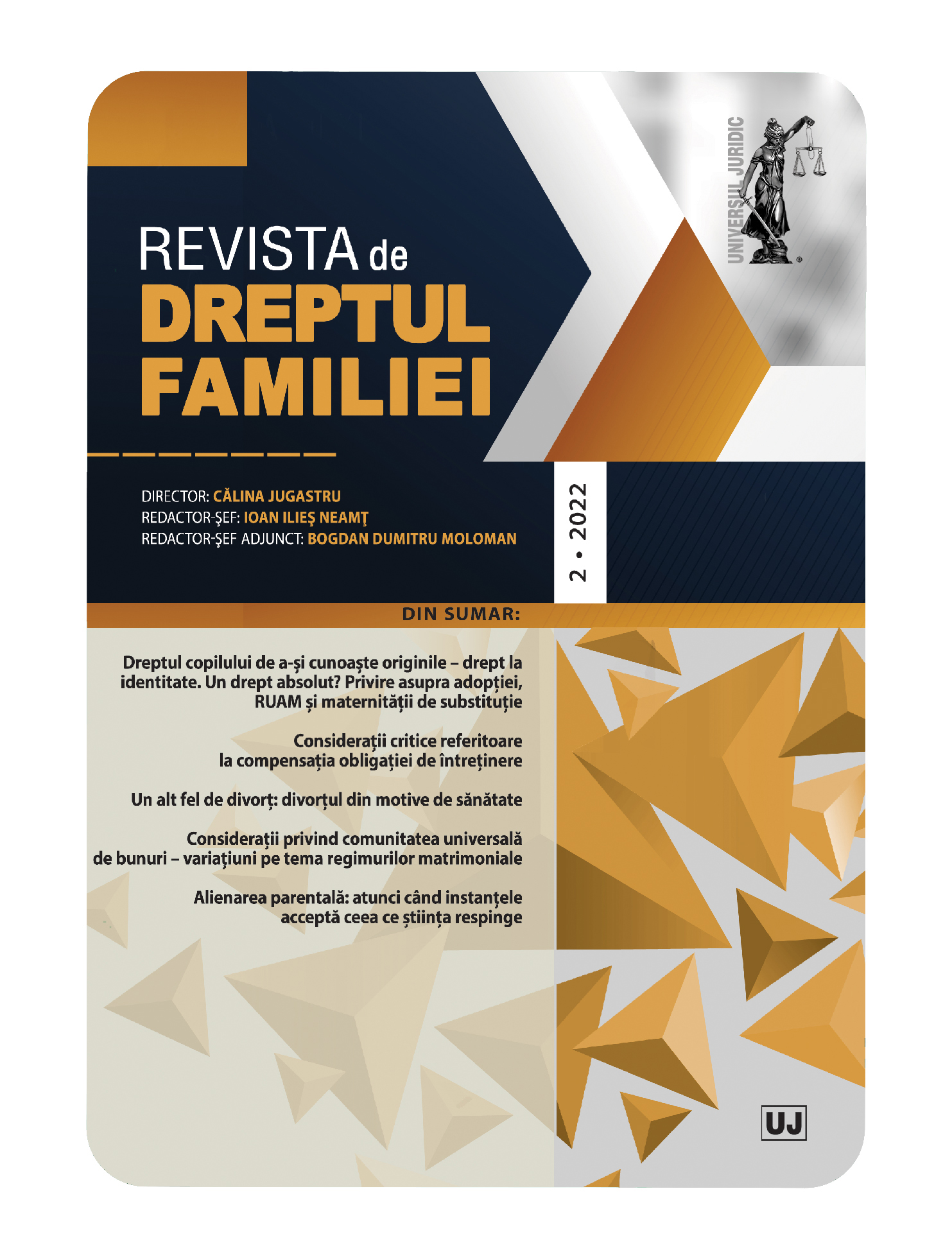Dreptul copilului de a-şi cunoaşte originile – drept la identitate. Un drept absolut? Privire asupra adopţiei, RUAM şi maternităţii de substituţie
The childʼs right to know his origins – the right to identity. An absolute right? A perspective on adoption, assisted human reproduction (AHR) and surrogacy
Author(s): Carmen Oana MihăilăSubject(s): Law, Constitution, Jurisprudence, Civil Law, Human Rights and Humanitarian Law, EU-Legislation
Published by: Universul Juridic
Keywords: childrenʼs rights; identity; right to know origins; CRC; ECHR; adoption; surrogate mother; donor;
Summary/Abstract: “Mater semper certa est” – the rule of Roman law no longer has such an absolute character, losing its status of praesumptio iuris et de iure, at least in our times, as long as in the world a mother can remain unknown (consecrated are the cases of France, Germany or Hungary) or a donor (of sperm and oocytes) can claim anonymity. The right to know oneʼs origins, whether adopted children or those born as a result of medical procedures – RUAM or surrogacy, is not uniformly regulated, sometimes even revealing real divergences. The childʼs interest in the adultʼs right to privacy is another issue treated and interpreted differently. A personʼs right to know their origins is a reasonable concept, reinforced by international human rights law. Although Articles 7 and 8 of the Convention on the Rights of the Child do not expressly regulate the right to know oneʼs origins, the provisions contained in these texts, in conjunction with the provisions of Article 8 of the European Convention on Human Rights, through an extensive interpretation of the right to privacy, give us an image of a childʼs right to know information about his or her origins, about the persons who contributed to his or her birth. The childʼs right to identity cannot be considered absolute, but must be balanced against the rights of others. The present study proposes an analysis of both the legal aspects related to the fundamental right to identity, i.e. the childʼs right to know his or her origins, and the psychological nuances, implications and long-term effects of disregarding these rights. Identity, the “need to be”, the “need to become” is, as stated in the literature, both a static and dynamic concept. Knowing oneʼs origins and building an identity can heal wounds, but not having access to this information can create a significant emotional imbalance.
Journal: Revista de dreptul familiei
- Issue Year: 2022
- Issue No: 2
- Page Range: 46-77
- Page Count: 32
- Language: Romanian
- Content File-PDF

